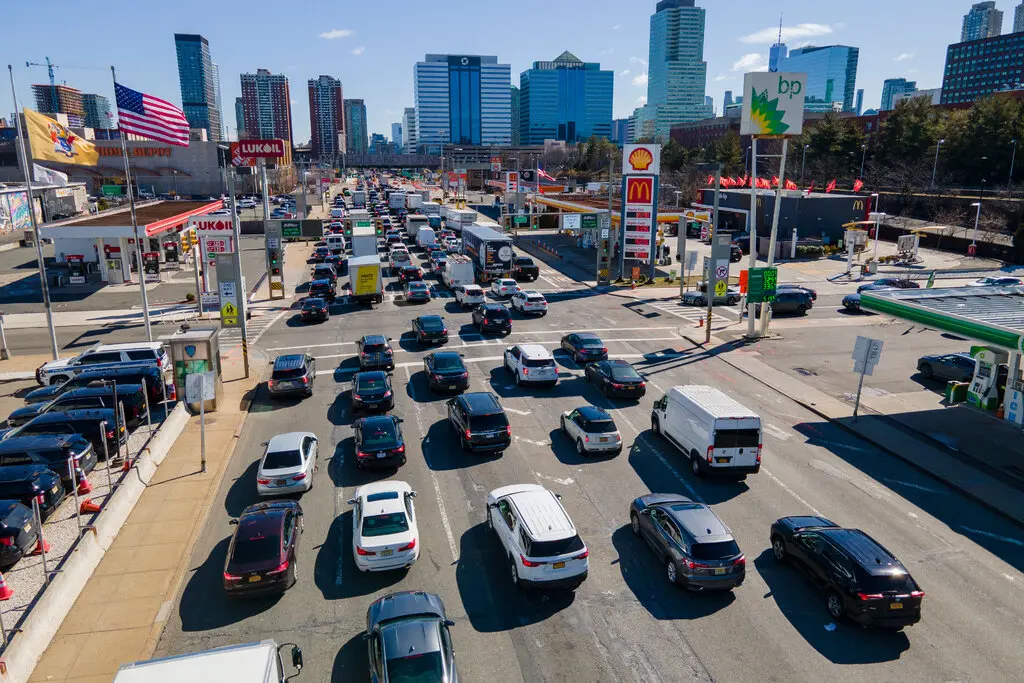New Jersey asks judge to block congestion pricing in Manhattan before it starts Sunday

New Jersey has formally requested a judge to block the implementation of congestion pricing in Manhattan, which is scheduled to begin on Sunday. The contentious pricing plan, which aims to reduce traffic congestion in the heart of New York City, has drawn strong opposition from New Jersey officials and residents who argue that it unfairly targets commuters from their state. The legal challenge has thrown a wrench into the long-anticipated program, potentially delaying its rollout and raising concerns about the future of urban transportation in the region.
Congestion pricing, a policy designed to charge vehicles a fee for driving into certain areas during peak traffic times, was approved by New York State lawmakers in 2019. The goal is to reduce traffic congestion, improve air quality, and generate revenue for critical infrastructure projects, such as public transit improvements. Under the plan, drivers entering the congestion zone in Manhattan’s busiest areas—mainly south of 60th Street—would be charged based on factors such as the time of day and the type of vehicle. The revenue generated from the charges would be used to fund the Metropolitan Transportation Authority (MTA) and improve transportation infrastructure in New York City.
However, the proposal has been met with significant opposition from officials and residents of neighboring New Jersey. New Jersey Governor Phil Murphy and other local leaders argue that the pricing scheme places an unfair financial burden on New Jersey commuters who travel to Manhattan for work, education, and other reasons. They have raised concerns about the economic impact, particularly for working-class residents who rely on driving into the city to earn a living. Additionally, critics contend that New Jersey commuters will be disproportionately affected because they have fewer public transportation options than those living in New York.
The request to block the congestion pricing plan was filed by New Jersey in federal court, seeking an injunction to stop the program from going into effect on Sunday. New Jersey’s legal challenge focuses on several key points, including concerns over the environmental review process and the potential economic harm caused by the pricing system. The state argues that the Metropolitan Transportation Authority (MTA) failed to adequately assess the potential negative effects on New Jersey commuters and did not conduct a comprehensive review of the environmental impact.
The challenge has drawn attention to the broader issue of regional cooperation and the impact of New York’s policies on its neighboring states. New Jersey’s legal team claims that the pricing plan violates both state and federal law, asserting that it was passed without sufficient consultation with New Jersey officials. The state is calling for a delay in the implementation of the program until further legal review can take place.
In response, New York officials have defended the congestion pricing plan, emphasizing its potential benefits for the city’s environment and public transportation system. The MTA and city leaders have argued that the plan is necessary to reduce traffic congestion, improve air quality, and provide funding for essential transit projects, including subway and bus improvements. New York officials have also noted that the program would encourage greater use of public transportation, reducing the overall number of vehicles on the road.
The controversy surrounding the congestion pricing plan highlights the challenges of implementing regional transportation policies in areas with high levels of interstate commuting. While New York City has a robust public transportation system, many residents in the surrounding areas, including New Jersey, rely on driving to reach the city. For them, the proposed charges could represent a significant financial burden. In response to these concerns, New Jersey officials have called for more equitable solutions, such as improving transportation infrastructure and expanding options for commuters.
As the court date approaches, the future of congestion pricing in Manhattan remains uncertain. If the judge sides with New Jersey, the program could be delayed, further fueling the debate over its potential economic and social effects. On the other hand, if the judge allows the program to proceed, it could set the stage for the broader adoption of congestion pricing in other cities across the United States.
For now, commuters in the region are left in limbo, unsure whether the pricing system will go into effect as planned. As the legal proceedings continue, it remains to be seen how this issue will ultimately be resolved and what it will mean for the future of transportation in New York and New Jersey.






